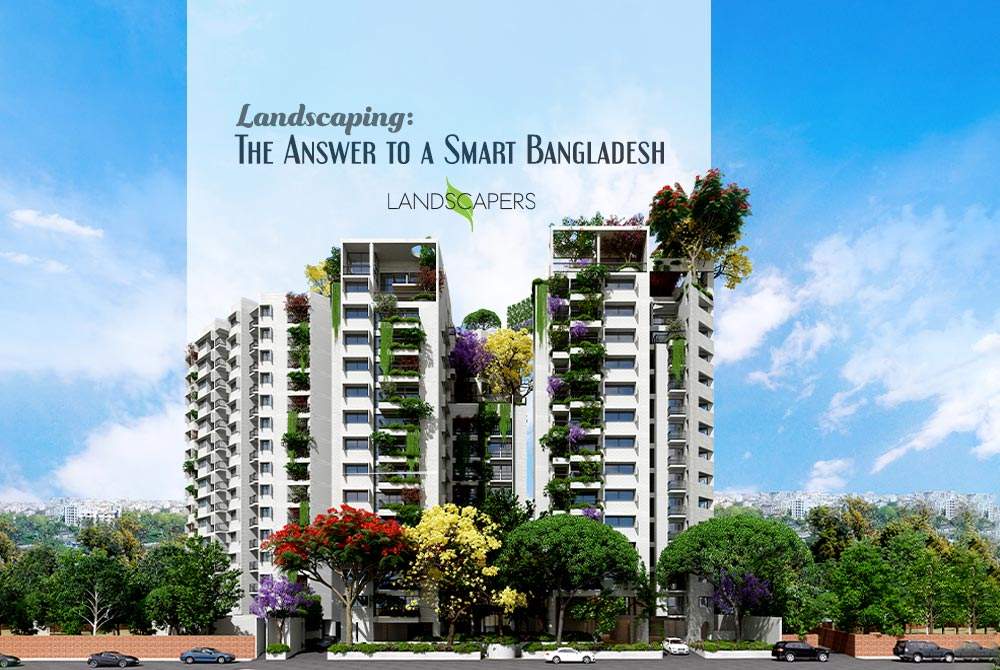
Landscaping: The Answer to a Smart Bangladesh
Bangladesh is a country with a new vision. We have moved on from ‘Digital Bangladesh’ to a new concept called ‘Smart Bangladesh’. By 2041, the government aims to transform the nation into a technologically advanced and sustainable society, where all citizens enjoy a high quality of life. This vision is called Smart Bangladesh, and it encompasses four pillars: smart citizens, smart government, smart economy, and smart society. But how can we achieve this vision? What are the steps we need to take to make Bangladesh smarter, greener, and more resilient? One of the answers lies in landscaping.
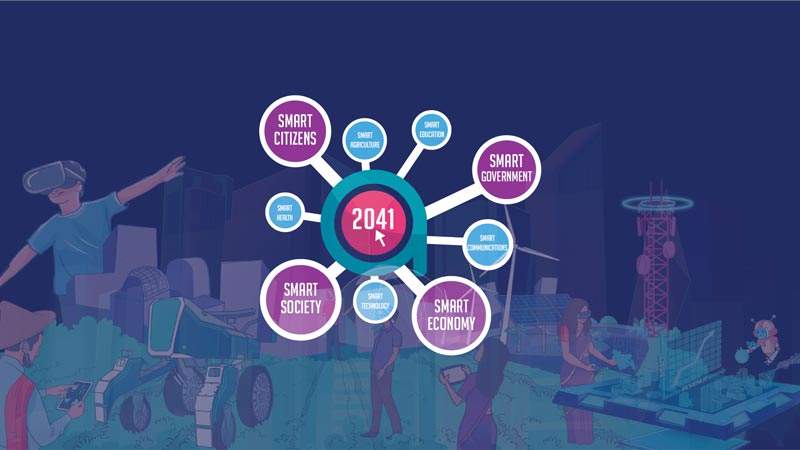
Why Landscaping Should be Done Right
Landscaping is the art and science of designing, creating, and maintaining spaces that are functional, attractive, and beneficial for the environment. Landscaping can help us achieve the goals of Smart Bangladesh in many ways, because it allows us to envision cities and communities that are self-sustaining, eco-friendly, less polluting, and carbon-negative. Thus, the overall country maybe technologically advanced, but also ecologically a safe space in the planet for all species.
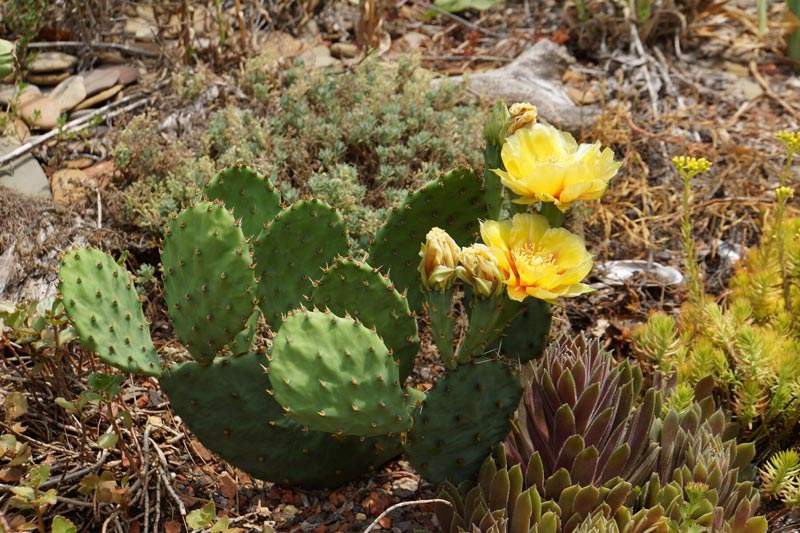
Landscaping for Cities
One effect of the current climate change is heat waves. Across the globe, unpredictable heat waves have led to flash floods, droughts, surprise cyclones, and forest wildfires. Air and water pollution levels are simply aggravating these disasters. However, plants and trees create microclimates that moderate the temperature and humidity of the surrounding area. For example, a study by the U.S. Forest Service found that urban tree canopies can lower the air temperature by up to 5°C, which can reduce the need for air conditioning and save energy. Because of the rising temperatures, a majority of urban citizens have resorted to air conditioning, which is just increasing outdoor temperatures. Therefore, it is crucial to start small, right from our own homes and communities. A collective sum of well-balanced, landscaped microclimates and greenery can reduce temperatures and negative climate change effects. It can offer shade and spaces of relaxation for citizens as well.
Landscaping for Outdoor Spaces
Landscaping creates usable outdoor space, improving our quality of life. Landscaping can make our homes, workplaces, schools, and public spaces more comfortable, beautiful, and inviting. It can also provide opportunities for recreation, relaxation, education, and social interaction. For example, gardening can be a rewarding hobby that improves our physical and mental health. A study by Healthline found that gardening can help fight disease, build strength, improve memory, boost mood, reduce stress, and foster human connections. Rooftop gardening has become extremely popular nowadays as more and more citizens are aware of climate change now. It also offers residents their own, healthy source of fruits, vegetables, and flowers. In a Smart Bangladesh, rooftop gardening will indeed become a staple. To make things more interesting, many buildings have adopted vertical gardens as well.
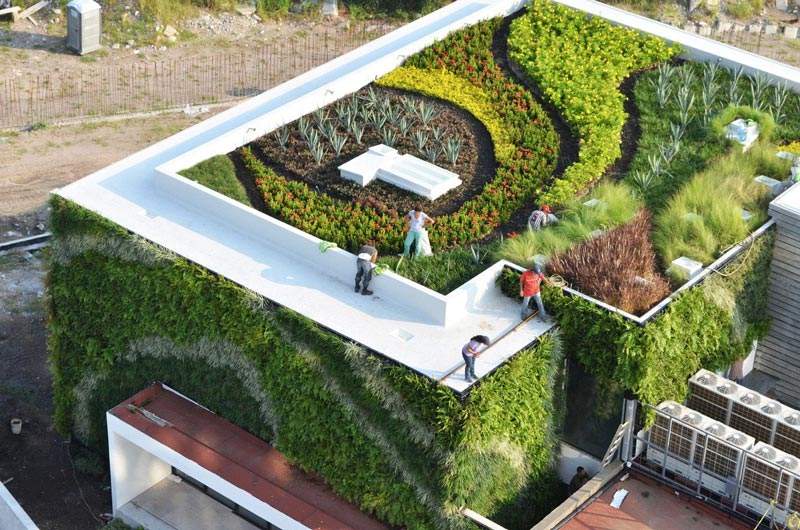
The more we stay connected to nature, the more wellness we achieve. Landscaping can also create picture-perfect community gardens, parks, playgrounds, and trails that encourage people to spend more time outdoors and enjoy nature. A city in Colombia recently adopted a fascinating project called ‘Green Corridor’. Through this project, major parks in the cities are interconnected via a number of roads and streets that are perfectly landscaped with lush plants and trees, appearing like a web of greenery. These green webs now have cycling lanes and walkways for people to enjoy the bounties of nature. The successful urban reforestation of this city reduced its overall temperature by 5.5℉.
Landscaping for Diversity
Landscaping can also enhance biodiversity and provide habitats for wildlife, which can improve the ecological balance and resilience of the country. Just think how less burdened the magnificent Sundarbans and the rainforests of Sylhet will be if we could adopt green policies within our major cities by 2041! Other cities are way ahead in this case, and we should definitely learn a thing or two if we want to reduce the effects of climate change in our country. Landscaping can help reduce air pollution, noise pollution, soil erosion, and water runoff. It encourages residents to be mindful of water, use smart technologies for water conservation, and ensure healthy drinking water as well. Take a look at Vienna, which has installed thousands of water fountains and ‘cooling parks’ around the city. Those who cannot afford air conditioning can head to these parks, stay under the large trees and enjoy the fountains for recreation. The fountains offer drinking water to tired, thirsty individuals and animals as well. Several buildings in Bangladesh now have rainwater harvesting systems to replenish, reuse, and recycle rainwater whenever it rains. These systems also make use of fountains to provide drinking water to animals, birds, and filtered water to humans.
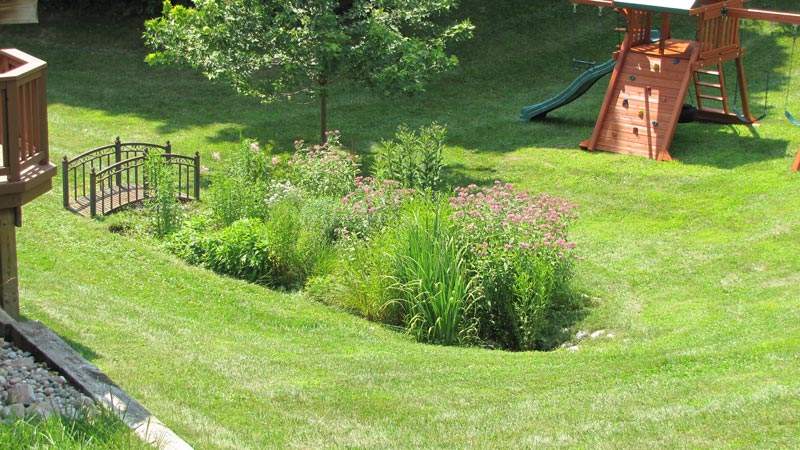
Landscaping for the Country
Landscaping offers economic benefits, which can propel our nation from a developing country to a developed nation fueled by green economy. Landscaping can increase the value of our properties, attract customers and tourists, and create jobs and income. For example, a study by Michigan State University found that landscaping can increase the perceived value of a home by up to 11%, which can translate into higher selling prices. Landscaping can also boost the tourism industry by creating attractive destinations and enhancing the image of the country. Moreover, landscaping can generate employment opportunities for landscape designers, contractors, workers, suppliers, and educators. In Bangladesh the possibilities are endless. Rain gardens in tourist spots and forest parks in the hilly districts can boost eco-tourism and also enhance local economy.
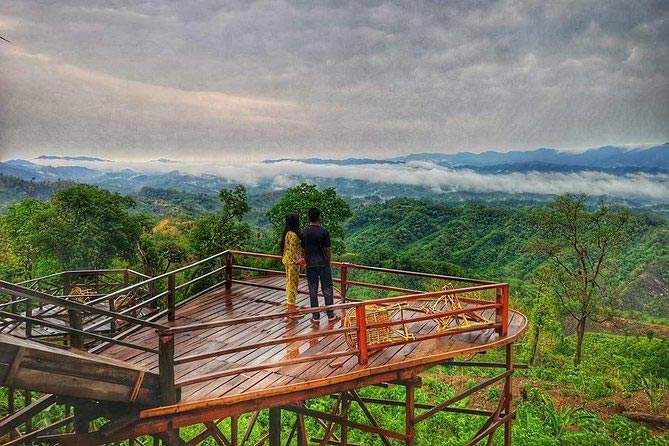
Landscaping is not only a way to beautify our surroundings; it is also a way to build a smarter Bangladesh. By investing in landscaping solutions, we can improve our environment, our well-being, our economy, and our society. We can also contribute to the global efforts to combat climate change and achieve the Sustainable Development Goals. Landscaping is one of the keys to unlocking the potential of our country and realizing our vision of Smart Bangladesh by 2041.


